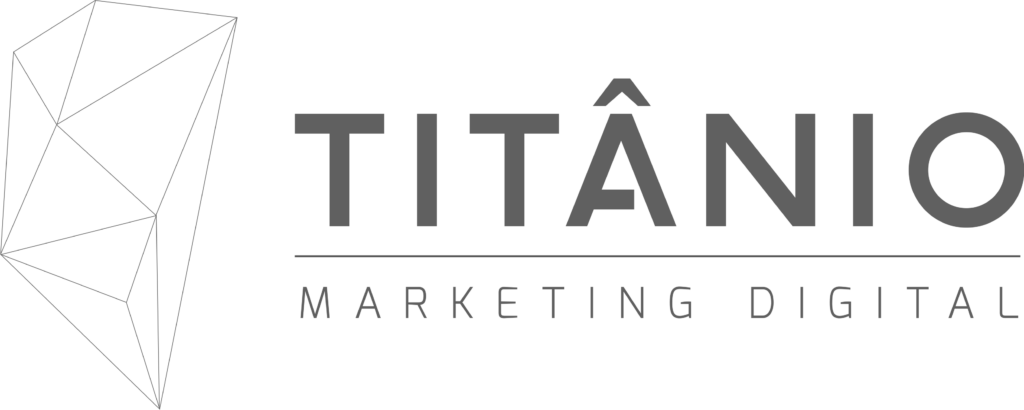The terminals received more than 1.5 billion reais in investments and represent the beginning of new businesses at the port, diversifying services already provided on the enterprise.
“Operation of these new terminals at Açu Port expands our capacity to serve our clients and makes the non-stop shop concept come true, turning the enterprise into one of the main hubs in Latin America,” said José Magela Bernardes, CEO of Prumo, the company that operates and develops Açu Port .
Furthermore, T-MULT provides clients installed in its retro-area direct access to a port terminal, developing the port’s industrial complex and allowing the port-industry concept to materialize. With this concept, Açu Port brings to Brazil an integrated solution that seeks to meet all client needs in one space, offering competitiveness, quality and reducing so-called country risk.
Açu’s Marine Fuel Terminal (TECMA) began operations this month by selling bunker under the BP Marine brand. The terminal is a partnership between Prumo and BP and offers fueling services for vessels at Açu Port and clients in the region. This terminal is a landmark for Açu Port and will be regarded as the best fueling alternative in Rio de Janeiro state.
T-OIL is a partnership between Prumo and Germany’s Oiltanking and is beginning its commissioning activities. With a current depth of 20.5 meters which will be expanded to 25 meters, T-OIL has authorization to handle 1.2 mbpd and is the only private terminal in Brazil for oil transshipment.
With three berths alongside 1.4 km of breakwater, the terminal will carry out operations in a sheltered area, enabling safer and quicker procedures, with efficiency and lower costs for clients. The result is increased competitiveness for Brazilian crude. Additionally, Açu Port gathers high-level characteristics that offer quality service for the whole oil & gas industry.
About Açu Port
Prumo Logística develops and operates Açu Port. The company offers infrastructure solutions for the Oil & Gas industry, in addition to space for installation of units of maritime and industrial companies. EIG Global Energy Partners have been Prumo’s controlling shareholders since 2013.
Located in São João da Barra (Rio de Janeiro State), Açu Port started operations in 2014, and striving for excellence in safety, serves companies that are leaders in their industries. Açu Port has an area of 90 km², divided into two terminals: Terminal 1 (T1 – offshore terminal) and Terminal 2 (T2 – onshore terminal), as well as space for the installation of facilities by maritime and industrial companies. In 2015, 207 vessels moved through Açu Port.
T1 handles iron ore and crude oil, with berths built along 3 km of quayside. Operating since October 2014, the terminal welcomed more than 100 iron-ore ships for Anglo American and handled more than 13 million tons. Prumo and Anglo American each own 50% stakes in a joint venture named Ferroport. T1 encompasses the Oil Terminal (T-OIL), with capacity to handle 1.2 mbpd, which starts cargo commissioning this month.
T2 is composed of the surrounding area of the canal for navigation, with 6.5 km in length, 300 meters in width and up to 14.5 meters in depth. Technip, NOV, InterMoor, Wartsila, Edison Chouest and BP-Prumo already operate their own facilities at the terminal.
Edison Chouest Offshore (ECO), a leader in the maritime industry, started in April 2016 operations in its offshore support base, which will have more than 1 km of quayside. With 16 berths and 600,000 m2, the unit will be the world’s largest base, and has a contract with Petrobras for operation of six berths in its terminal.
Also located on T2, the Multicargo Terminal (T-MULT) started operations in 2015 by handling bauxite for Votorantim. Three operations were carried out, handling 114,000 tons of the product.
Additionally, BP and Prumo created in 2013 a 50-50 joint venture for selling and supplying marine fuel.
Including all investment since 2007, 13 billion reais have already been deployed on the enterprise, with 6.4 billion reais coming from Porto do Açu Operações (Prumo Logística subsidiary) and 3.7 billion reais from Ferroport (a joint venture by Prumo and Anglo American) and Anglo American. The remaining amount was invested on terminals by clients.
More information:
• Oil Terminal (T-OIL)
The Oil Terminal (T-OIL) is installed on Açu Port’s Terminal 1 – T1 (offshore terminal). With three berths alongside 1.4 km of breakwater, the terminal will carry out oil transhipment operations in a sheltered area, enabling safer and quicker procedures, with efficiency and lower costs for clients. The result is increased competitiveness for Brazilian crude. Additionally, Açu Port gathers high-level characteristics that offer quality service for the whole oil & gas industry.
At T-OIL, transhipment operations will be held in an area that is sheltered by breakwater, with one ship moored and the other one alongside, both surrounded by contention barriers. This type of operation offers greater safety in transshipment all year long.
Currently, T-OIL has 20.5 meters in depth and may initially receive Suezmax vessels. By the end of 2017, its depth will be expanded to up to 25 meters. With more depth, Açu Port will be able to receive at T-OIL Very Large Crude Carriers (VLCC), for up to 320,000 tons. The North and Central berths on the terminal will be prepared for transshipment between VLCC and SuezMax ships, while the South berth will only offer transshipment between SuezMax ships.
T1’s new operational capacity will ensure regional economic growth and, at its peak, T-OIL’s volume is estimated to provide a 10% (ten percent) increase in service tax (ISS) revenues for the city of São João da Barra.
The terminal is authorized to handle 1.2 mbpd and has an area with license for storage and crude treatment (specifications and blending). In the future, construction of an oil treatment facility with storage tanks will contribute to attract other clients, who also need this type of service to add value to their oil.
In November 2015, Prumo sold 20% of T-OIL for US$ 200 million to Germany’s Oiltanking. The terminal was thus priced at US$ 1 billion.
The terminal is being operated by Oiltanking Açu Serviços, a subsidiary of the German company. Operations will begin in August with oil transshipment for BG (recently acquired by Shell). The contract with the oil company was signed in June 2015 and contemplates transshipment services at the Oil Terminal (T-OIL). A total of 200 kbpd are expected to be handled, with the possibility of an increase to 320 kbpd.
Additional services are expected at T-OIL, such as vessel clearance, residue disposal, water supply and crew change, making Açu a complete terminal to serve the oil market in Brazil.
• Multicargo Terminal (T-MULT)
The Multicargo Terminal (T-MULT) is part of Açu Port’s Terminal 2 – T2 (onshore terminal). A new shipping alternative for Brazil’s Southeast region, the terminal makes the port-industry concept come true, contributing to develop the industrial complex.
The terminal is authorized to handle solid bulk and project cargo, in addition to containers, and has 14 meters in depth, two berths along 500 meters of quayside and a total area of about 200,000 m2. There are plans to expand the terminal to 1,200 meters of quayside and a total area of 1 million m², allowing the enterprise to handle containers in large scale. Annual capacity for handling solid bulk and general cargo is about 4 million tons in this first stage.
Infrastructure available at the terminal includes two Mobile Harbor Cranes Terex/Gottwald 4406B, each with a radius of 46 meters and hoisting capacity of up to 100 tons. The terminal also has two patio forklifts, two aspersion hoppers with nominal capacity of 360 tons per hour each, two highway scales, spreaders, chains and hoists for general cargo and project cargo, eight platform trucks with capacity for 80 tons, two automatic spreaders for containers and 10 carts for solid bulk.
Furthermore, T-MULT has a team trained for port operations and an available team to support imports and exports, such as cargo owners, transportation companies, expediting agents and cargo agents. Another advantage is the availability of a customs area, making Açu Port the best option in cargo logistics.
In this first stage, T-MULT is expected to handle pet coke, coal, clinker, fertilizers, ornamental rocks, project cargo, containers and bauxite. In 2017, the terminal will be fitted with conveyor belts and a ship-loader, attracting more cargo and increasing productivity.
Current road access to Açu Port enables connection with the biggest urban centers, bypassing downtown Campos dos Goytacazes. Logistic access to the Port is included in two railway stretches planned in the federal government’s Logistic Investment Plan (PIL): EF-118, connecting Açu to Rio de Janeiro and Vitória, and EF-354, connecting Açu to Minas Gerais, Goiás and Mato Grosso states, which is still being studied. There are ongoing works to connect Açu to highway BR-101, reaching the largest production and consumer centers in Brazil.
In 2015, three loadings of bauxite were executed at the terminal, totaling 114,000 tons, under the contract signed between Prumo and Votorantim Metais, contemplating 300,000 tons of bauxite and pet coke annually.
• Açu’s Marine Fuel Terminal (TECMA)
Açu’s Marine Fuel Terminal (TECMA) is a partnership between Prumo and BP for importing marine fuel for sale to clients in the local oil & gas market. Located on Terminal 2 – T2 (onshore terminal), it has two mooring berths.
The base will import, export, sell, distribute and market marine fuels under the BP Marine brand, which is one of the largest in the world for supplying fuels, lubricants and technical services for the maritime industry.
With a privileged location and 14 meters in depth, TECMA positions Açu Port as one of the main hubs for distributing marine fuels in the South Atlantic.

